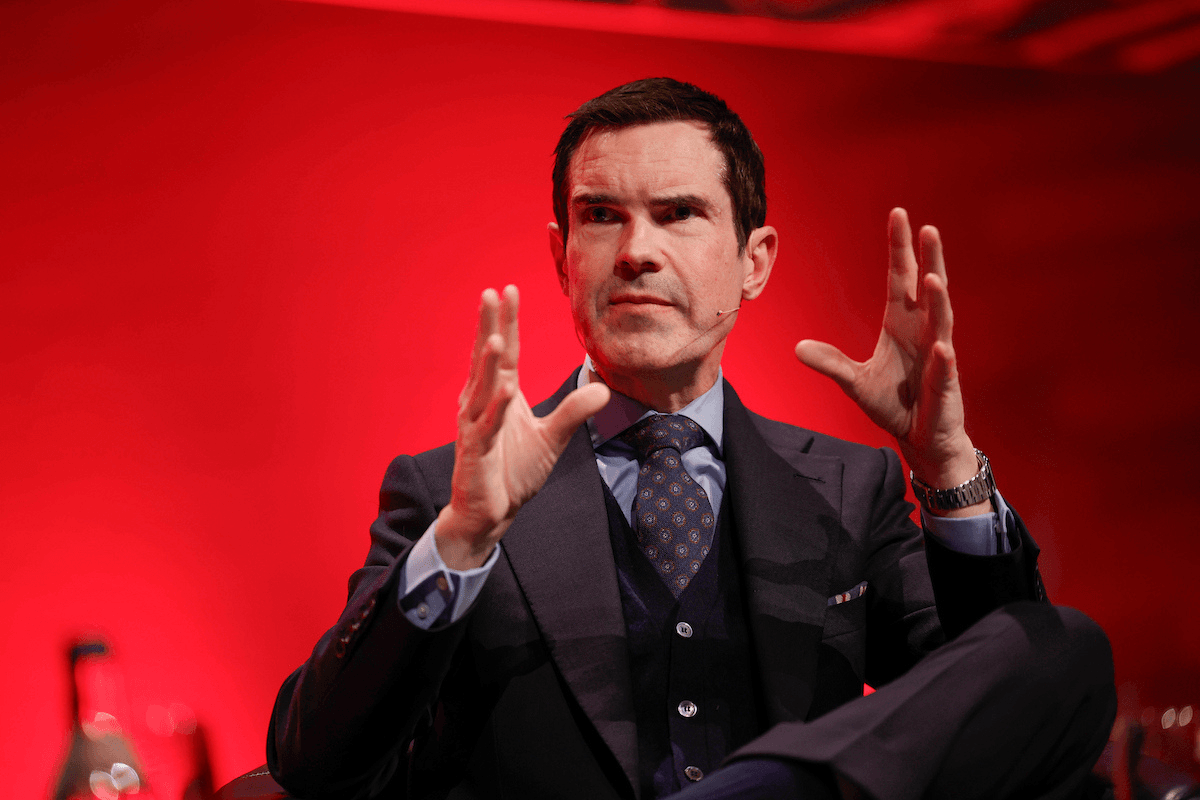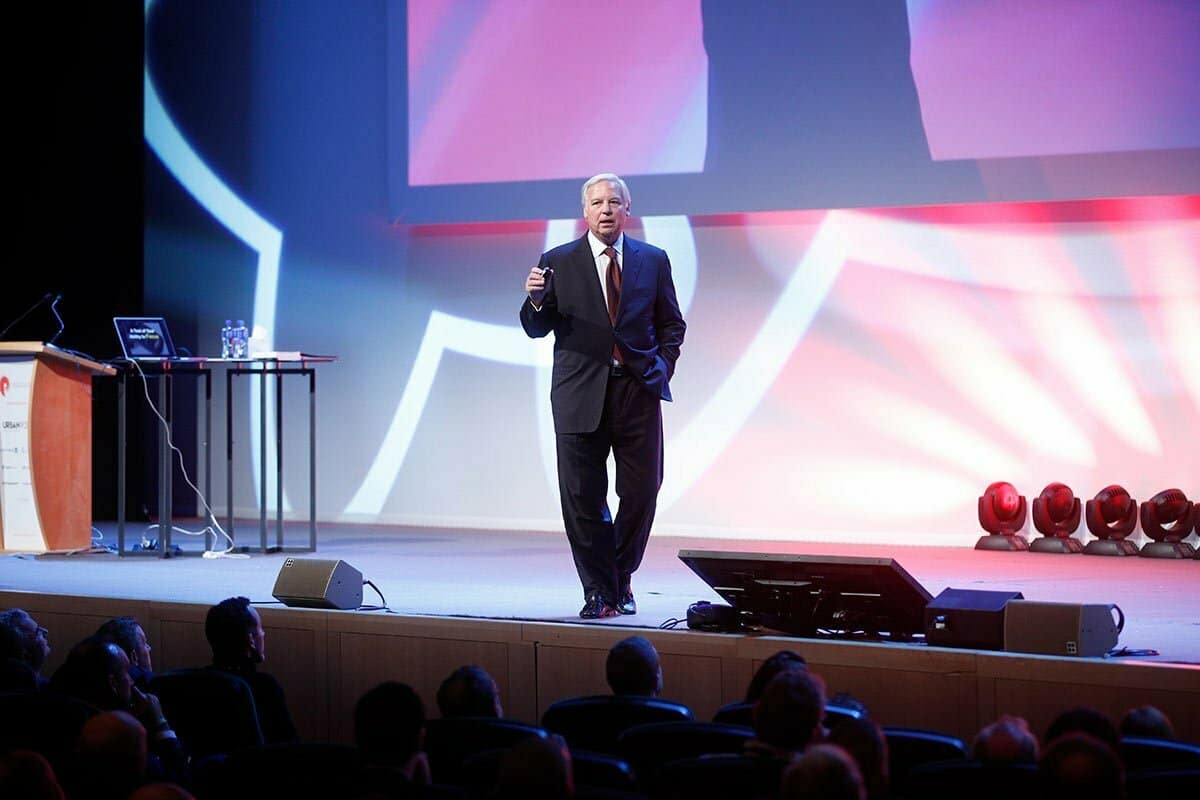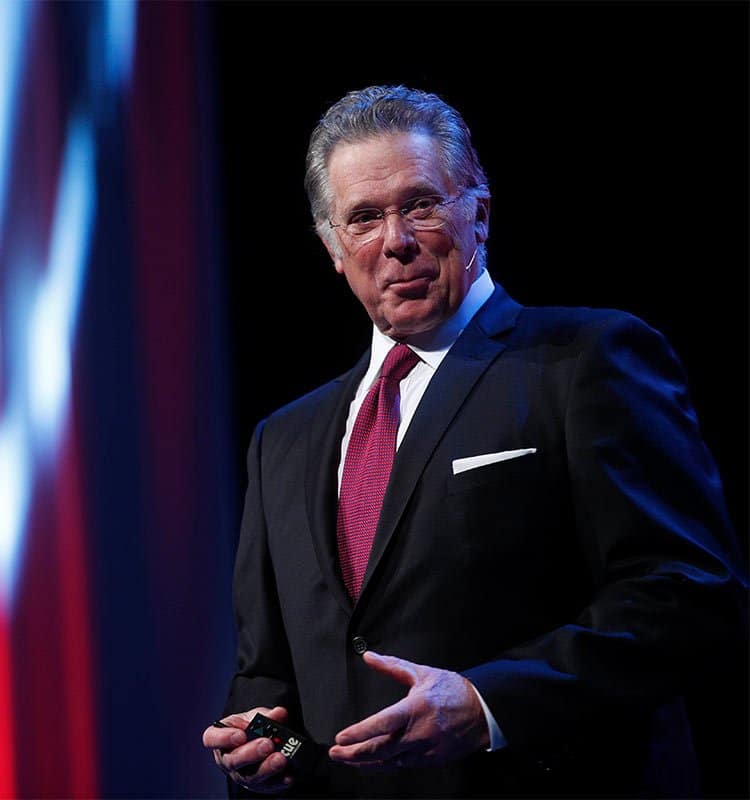Our time is precious and we have to make the most of it, for both our business careers, and to live a happy
life where we fulfil our potential.
Paul McNeive is a sought after motivational speaker and part of our Front Row Speakers roster. Here, he opens our new series of Pendulum Guest Blogs.
He was managing director of Hamilton Osborne King when the firm was sold to Savills for €50m. Paul started his career as a trainee in the basement of the firm and not even the loss of his legs in a fire prevented him from rising to the top position to lead 250 staff. He has since become the first double amputee in the world to gain a helicopter pilots license.
It’s the start of another year for the property business, and the growing economy points to another good year ahead. But stop. And think. Before charging headlong into another 12 months of activity, where the outcome really only depends on how the market performs, it makes sense to pause and look at ‘the big picture’. Am I in the right business at all? Am I thinking strategically about the future, or caught up in operational matters?
If you intend taking four weeks’ holidays this year, and not working weekends or bank holidays, be aware that there are just 217 days until you are sitting down to Christmas dinner again.
Our time is precious and we have to make the most of it, for both our business careers, and to live a happy life where we fulfil our potential. Did you come back to work in January with a sense of dread, wondering how you would get through the month and not looking forward to the year ahead?
If so, you are in the wrong career.
A touch of post-holiday blues is normal, but if you require motivation and pressure to start performing, there’s something wrong. If you are working in a career that excites you, you will have two weeks of high-impact performance behind you already.
Aristotle referred to our ‘Telos’ – our higher calling, and if we are working in an area aligned with this, we will need no motivation to perform. You will meet a handful of developers, agents, architects and others who are operating on this higher plane. They don’t regard their job as work – it’s their passion, and they are the best in the business.
If you don’t feel shades of this about your career, you should be considering a move. Life is too short.
The next most important thing is to have a plan for the year ahead. Otherwise you are just drifting and hoping for the best. Start with the end in mind: where do you want to be this time next year? If you plan for that, you can make it happen. Make a plan for yourself and focus on just one goal. What is the game changer for you? Make it ‘non-negotiable’ – everything has to take its place around this.
Write down what you need to do to make this happen.
This will mean making changes. If you repeat the same pattern of behaviour you will be in the same position next year, except one year older. Be aware that your greatest goals are well outside your comfort zone. For those running firms or departments, make sure that your staff know what the vision is for the year, and what the plan is to get there.
Make the vision exciting, eg: ‘we are going to win business from three named new clients’.
Communicate constantly how you are going to do this, what everyone’s role is, and how you are doing. Your staff will perform with passion when they feel that they are part of an exciting plan.
Strategic gains are often the result of small improvements in lots of things. Write those down, how much you are going to improve them by, and how. At last week’s excellent Pendulum Summit in the Convention Centre Dublin, Australian business speaker Brad Sugars demonstrated how the power of leveraging makes important a focus on small improvements.
He showed that a company’s profits derive from leads converted into a number of customers, multiplied by the number of transactions, which multiplied by the value of the average sale, equals your revenue. Your revenue multiplied by your margin is your profit. But a 10pc increase in each of your conversion rate of leads into customers, your number of transactions per customer, the value of your average sale, and your margin, results in a 45pc increase in your profits.
That night, at the CEOs’ dinner in the Marker Hotel, Richard Branson told us that his success is down to having the vision, and then getting out of the way to allow people to execute it.
That’s why it’s important to stop, and think.
By Paul McNeive. This article also appeared in the Irish Independent.








